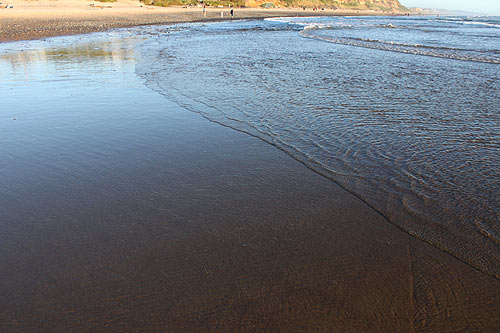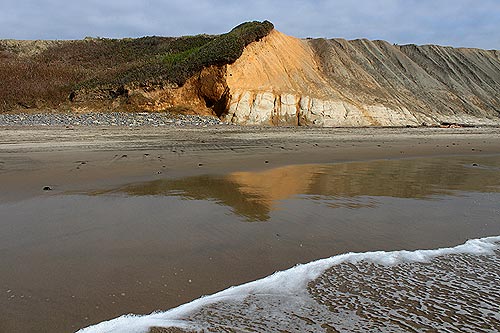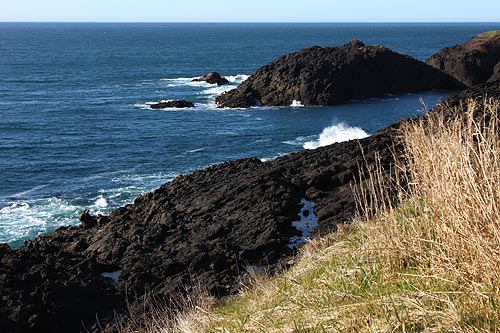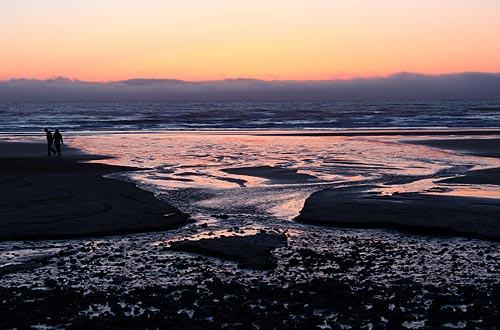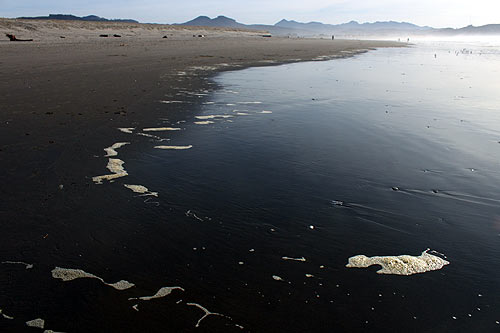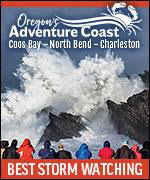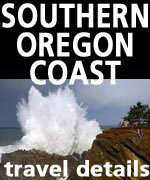Scientists: Methane Bubbles May Increase Along Washington, Oregon Coasts
Published 10/16/2015 at 5:02 AM PDT
By Oregon Coast Beach Connection staff
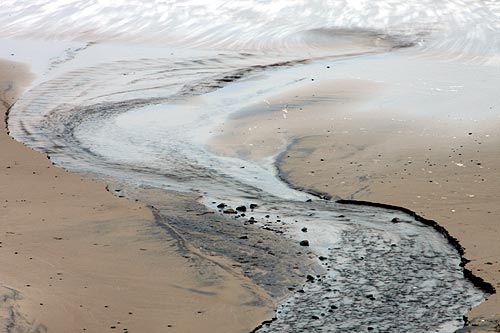
(Seattle, Washington) – A new study from oceanographers out of Seattle's University of Washington suggests that methane bubbles – or plumes – could be on the rise beneath the oceans just off the Oregon and Washington coasts. The worry is the frozen pockets of methane ice that exist just below the ocean floor, just under the sediment, could increase in activity and reach the surface, where they could hurry along the effects of global warming.
The researchers found some 168 plumes observed off the Pacific Northwest coastlines within the past decade, and a disproportionate number were at a critical depth that could spell trouble. While most were on the Washington coast, some were on the southern coast of Oregon as well.
H. Paul Johnson, a UW professor of oceanography, is the lead author on the study. He said it appears as if a warming ocean is contributing to the problem, and that these ice pockets that have been there for thousands of years may be thawing at a higher rate because the ocean is getting warmer much deeper.
Methane is a greenhouse gas and is known to have contributed greatly to enormous swings in the Earth's climate millions of years ago. Luckily for modern civilization, there are plentiful microorganisms that eat up the methane gas before it hits the surface.
This uptick in methane plumes, Johnson said, could be pushing along some of the environmental changes already experienced by the Oregon coast's deeper waters, including the infamous and mysterious “dead zone” where oxygen becomes depleted in large areas.
Another potential consequence, Johnson said, is the destabilization of seafloor slopes where frozen methane acts as the glue that holds the steep sediment slopes in place. Things could shift and move below the waters off the Oregon coast and elsewhere.
Johnson said ocean water is being warmed at a depth of 500 meters, where many of these deposits lay. Much of the warming, however, apparently comes from a hot zone that was formed in the ocean off Siberia decades ago and has slowly moved here via currents.
The study was compiled from the work of research vessels from UW, earlier research and reports from fishermen.
Methane bubbles beneath the sea have recently entered some parts of popular culture as a handful of researchers have suggested sudden eruptions of these can theoretically cause a boat to capsize.
More about Oregon coast science.
More About Oregon Coast hotels, lodging.....
More About Oregon Coast Restaurants, Dining.....
LATEST Related Oregon Coast Articles
Likely just before dawn best hour but peak happens during daylight. Weather
Dark Sky Week is Prime Along Oregon Coast: Where and Where Not to Go
General guide to dark sky viewing from south to north coast. Astronomy
Sizable Price Drop, Deals in Lincoln City During Quiet of April on Central Or...
20 perc off at A1 Vacation Rentals across its roster, including Gleneden Beach. Lincoln City specials
Upcoming S. Oregon Coast Events Include Gem Show, History: Coos Bay, Bandon
May 6 talk at Coos History Museum, Mayfly Fest May 17, Bandon Rock / Gem Show June 7,8
Washington Coast Cleanup on April 19 - Coinciding with Oregon Coast's SOLVE E...
From the Puget Sound to Long Beach, alongside Oregon's cleanup. Washington coast events, Seaside events
Astoria's Riverwalk Gets New Lighting, More N. Oregon Coast Roadwork
Delays coming this summer, but the riverwalk has a new look. Seaside, Cannn Beach
April Gets Even Cheaper Midweek at Depoe Bay, Lincoln City: Oregon Coast Deals
Off-season rates plus more at Keystone Vacation Rentals. Depoe Bay lodging specials, Lincoln City hotel reviews, Newport hotel reviews
Washington Coast Begins Week of Clam Digs, April 12 Through 18
Long Beach, Twin Harbors, Mocrocks and Copalis at different times. Washington coast events
Back to Oregon Coast
Contact Advertise on BeachConnection.net
All Content, unless otherwise attributed, copyright BeachConnection.net Unauthorized use or publication is not permitted




